
IOC Sub-Commission for the Western Pacific (WESTPAC)
Advancing knowledge and cooperation for a healthy ocean and prosperous society

Ocean Deoxygenation
Knowledge Synthesis
Declining oxygen in the world's ocean: 15 things to know
- The ocean’s health is dependent on oxygen. It shapes aquatic ecosystems and is essential for marine life from the intertidal zone to the deepest parts of the ocean.
- The amount of oxygen in the ocean is decreasing. The area of low oxygen water in the open ocean has grown by 4.5 million km2 since the 1960s, and over 500 low oxygen sites have been identified in estuaries and other coastal water bodies.
- Human activities are a major contributor to the decline in oxygen levels in both the open ocean and coastal waters. The primary causes are the use of fossil fuels and agricultural and human waste discharges, which result in climate change and increased nitrogen and phosphorus inputs.
- Deoxygenation (loss of oxygen) occurs when oxygen in water is depleted faster than it is replenished. Warming and nutrients both increase microbial oxygen consumption. Warming reduces the supply of oxygen to the open ocean and coastal waters by increasing stratification and decreasing oxygen solubility in water.
- Dense aquaculture can contribute to deoxygenation by increasing the amount of oxygen used for respiration by farmed animals as well as microbes that decompose their waste and feces.
- A lack of oxygen reduces growth, increases disease, alters behavior, and increases mortality in marine animals such as finfish and shellfish. As oxygen levels fall, so does the quality and quantity of habitat for economically and ecologically important species.
- Finfish and crustacean aquaculture are particularly vulnerable to deoxygenation because the animals are confined in nets or other structures and are unable to escape to highly oxygenated water masses.
- Deoxygenation has an impact on marine biogeochemical cycles, specifically phosphorus availability, hydrogen sulphide production, and micronutrients.
- Deoxygenation, through its effects on the nitrogen cycle, may also contribute to climate change. When there is insufficient oxygen for aerobic respiration, microbes conduct denitrification to obtain energy, a process that produces N2O – a potent greenhouse gas.
- It is expected that the problem of deoxygenation will worsen in the coming years. Continued greenhouse gas emissions are expected to contribute to global warming and, as a result, deoxygenation. As human populations and economies grow, the global discharge of nitrogen and phosphorus to coastal waters may increase in many parts of the world. Many areas are expected to experience more severe and prolonged hypoxia than they do now.
- Slowing and reversing deoxygenation will necessitate global reductions in greenhouse gas emissions as well as reductions in nutrient discharges to coastal waters. International cooperation can help to reduce carbon emissions.
- The decrease in oxygen levels in the ocean is not occurring in isolation. At the same time, food webs are being disrupted as a result of overfishing and habitat destruction, and waters are becoming warmer, more acidic, and experiencing higher nutrient loads. The cumulative effects of human activities on marine ecosystems will be most effective in managing marine resources.
- Accurate predictions of ocean deoxygenation, as well as a better understanding of its causes, consequences, and solutions, necessitate increased ocean oxygen observation, long-term and multi-stressor experimental studies, numerical modeling, and historical and paleo reconstructions.
- Accurate oxygen measurements in the marine environment with appropriate temporal resolution and spatial coverage are required to document the current state of our ocean, track changing conditions, build and validate models that can project future oxygen levels, and develop strategies to slow and reverse deoxygenation.
- Taking the necessary steps to slow or reverse ocean deoxygenation can directly benefit marine biodiversity as well as human health and well-being. Sewage treatment, for example, and limiting global warming will improve marine ecosystem health, with societal benefits that go beyond simply increasing the amount of oxygen in our oceans and coastal waters
Other Initiatives
- UN Consultative Process on Oceans Focuses on Ocean Acidification | News | SDG Knowledge Hub | IISD
- Ocean Deoxygenation | IUCN
- Oxygen decline will impact marine ecosystems and the dependent human population.
- IUCN full report on Deoxygenation. https://portals.iucn.org/library/node/48892
- Dissolved oxygen data
- Le Pôle de données en Observation de la terre dédié à l’Océan
- CES “Dissolved oxygen”
- The Dissolved Oxygen Scientific Expertise Consortium brings together scientific stakeholders around the topic of Deoxygenation of the offshore and coastal ocean.
- Deoxygenation of the Ocean Affects Everyone, So Act Now | ArcNews | Summer 2018
- More than half of the oxygen we breathe comes from the ocean. But the ocean is facing unprecedented pressures. That is why the decline of oxygen in the ocean concerns absolutely everyone, no matter where we live.
Other Links
- Ocean Oxygen News
- Oxygen an Essential Ocean variable (IOCCP)
- Past GO2NE webinars
- Listen to hypoxia – impacts of low oxygen made audible
- Liège Colloquium
- Ocean Deoxygenation | IUCN
- Global Ocean Oxygen Network
- Status – Ocean Oxygen publications
How to cite articles on the website?
The following are examples of how to cite articles on this website:
Web page with known publication date
WESTPAC. Ocean deoxygenation: What is the issue?. IOC Sub-Commission for the Western Pacific website, https://ioc-westpac.org/ocean-deoxygenation/, 27/09/22.
Web page with unknown publication date
WESTPAC. Ocean deoxygenation: What is the issue?. IOC Sub-Commission for the Western Pacific website, https://ioc-westpac.org/ocean-deoxygenation/ accessed on 27/09/22.




